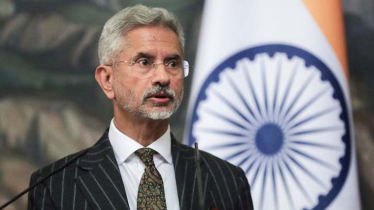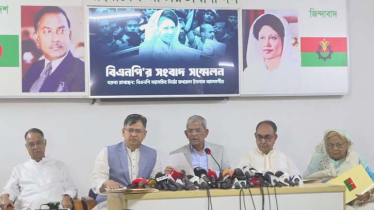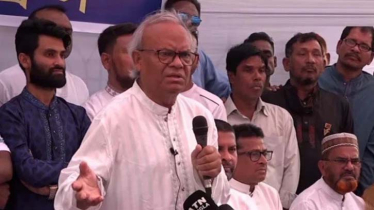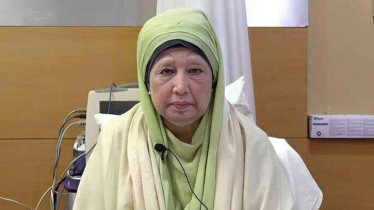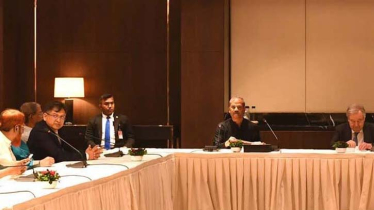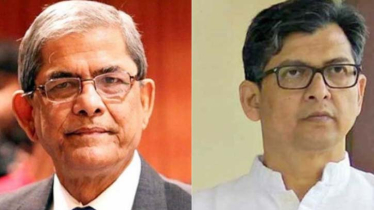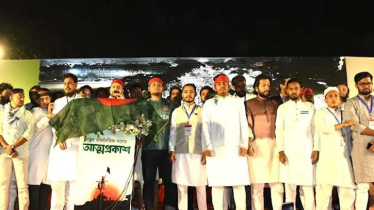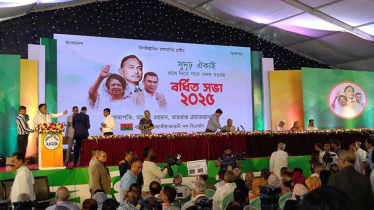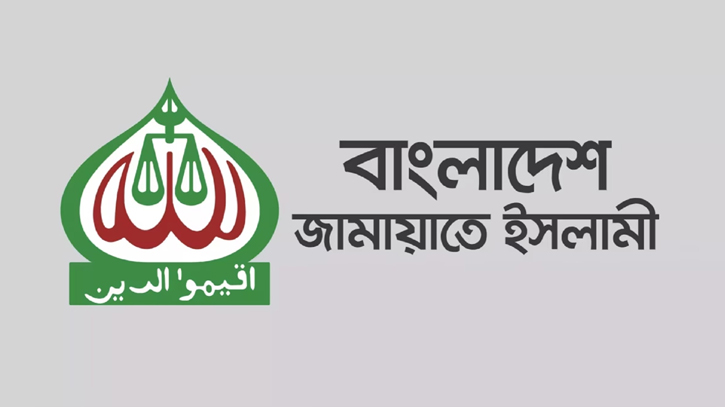
Photo : Collected
The value of Jamaat-e-Islami has increased again in politics. After the release of the top leaders of the party, including the Amir, Secretary General, after the 12th parliamentary elections, the party, which has been in hiding for 15 years, is now carrying out its programme openly. BNP's distance with its political ally Jamaat for more than two centuries has also reduced. Last Saturday, Colonel Oli Ahmed made explosive comments about Jamaat. He said, minimum cow is required for ploughing.
“Farming is not done with goats. Jamaat is necessary for BNP's movement to be successful, I told them in the meeting. Recently, in a meeting with the parties involved in the simultaneous movement in Gulshan, the top leaders of the party and the alliance proposed to announce a one-stage movement with the Jamaat.”
Political observers note that Jamaat-e-Islami has become an undeniable force in the politics of Bangladesh, being seen as an alternative power alongside the Awami League and BNP. The significance of Jamaat is evident in diplomatic circles, as illustrated by the European Union's open meeting with the group and subsequent reports of other diplomats holding meetings at their respective embassies. Political insiders acknowledge that Jamaat's organisational strength follows closely behind that of the BNP, and their absence is felt across the political spectrum. For any movement to succeed, Jamaat's involvement is considered essential.
Leaders within Jamaat suggest that the party's former Amir, Professor Ghulam Azam, had laid out a blueprint for the movement of the past caretaker government. Although there was an intention to mobilise before the national elections, the lack of a unified platform prevented its realisation. Currently, the BNP is contemplating a significant movement addressing civil issues and the country's fragile economic state. The party has indicated that its high command is in ongoing communication with Jamaat leaders, reflecting the strategic importance of their alliance.
According to sources, BNP recently held a meeting with like-minded parties and alliances to discuss a simultaneous movement. While some parties, including the LDP, 12-Party Alliance, Labour Party, and Gana Odhikar Parishad, expressed support for Jamaat's involvement in the movement, leaders from the Ganatantra Mancha, another partner in the simultaneous movement, opposed Jamaat's inclusion.
During the meeting, BNP's Liaison Committee inquired about Jamaat's role from Ganatantra Mancha leaders ASM Abdur Rouf and Mahmudur Rahman Manna. Both leaders refrained from giving any opinion, effectively leaving the decision to the BNP. Meanwhile, Ganatantra Mancha leaders Saiful Haque and Zonaid Saki maintained their opposition to Jamaat. They stated that they would not object to Jamaat conducting its programmes separately, as it has done previously.
After the 12th National Election, the significance of Jamaat-e-Islami within the BNP has notably increased. Last Ramadan, BNP hosted an iftar party at the Ladies Club in the capital to honour politicians. Key figures from Jamaat-e-Islami, including Amir Shafiqur Rahman, Secretary General Mia Gholam Parwar, Naib Amir Syed Abdullah Mohammad Taher, and Assistant Secretary General Abdul Halim, attended the event. This marked a departure from the previous year, when Jamaat was not invited to BNP's iftar.
Moreover, BNP leaders reciprocated by attending Jamaat's iftar party. This mutual participation underscores the regular communication and growing alignment between BNP and Jamaat.
Both BNP and Jamaat-e-Islami boycotted the national elections. Following this, Jamaat's leaders and activists across the country had made extensive preparations to participate in the upazila parishad elections, campaigning both online and offline and attending iftar parties. However, after deciding to boycott the upazila elections, BNP communicated its position to Jamaat. Subsequently, Jamaat decided to withdraw from participating in the upazila elections at BNP's request.
Shahadat Hossain Salim, Secretary General of Bangladesh LDP, a partner in the 12-party alliance, stated, "We have reached a consensus on the movement and struggle in the meeting of the 12-party alliance with the BNP. I have told BNP to involve Jamaat in the future movement. Almost all the parties in the simultaneous movement have expressed their opinion to BNP to keep Jamaat with them."
Gana Odhikar Parishad leader Abu Hanif stated that in the ongoing movement, BNP's Liaison Committee has been advised to involve Jamaat-e-Islami in order to establish a people's government and remove the current illegal government. BNP will discuss these suggestions in their standing committee meeting before making a decision.
Saiful Haque, one of the leaders of Ganatantra Mancha and general secretary of the Biplabi Workers Party, commented, "We do not know who has given BNP the opinion about Jamaat." He further added, "Many anti-government parties have carried out their own movements. There should be no problem if Jamaat continues in the same manner as they have done in the past."
Communist Party (CPB) General Secretary Ruhin Hossain Prince stated, "Jamaat-e-Islami opposed independence in 1971. We observe that the two major political parties of Bangladesh, Awami League and BNP, use them, which contradicts the constitution of 1972. We want to make it clear that if Jamaat-e-Islami resurfaces in the country, the current government or those joining them in the streets will have to take responsibility for it."
BNP Vice Chairman Shahjahan mentioned, "Most of the parties and alliances have expressed their opinions regarding Jamaat's involvement in the simultaneous movement, but some parties have objected. These views will be discussed in the BNP Standing Committee meeting. Decisions will be made based on the discussions and the prevailing circumstances."
Bangladesh Jamaat-e-Islami Secretary General Prof. Mia Golam Parwar stated, "Currently, Jamaat is continuing its movement on various issues of national interest, religious matters, political, and international concerns, while maintaining its distinctiveness. After analysing the upcoming political situation, the Jamaat movement programme will be adopted according to the needs of the time and the people's desire, Inshallah."
Messenger/Fameema

